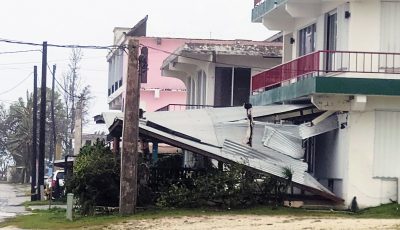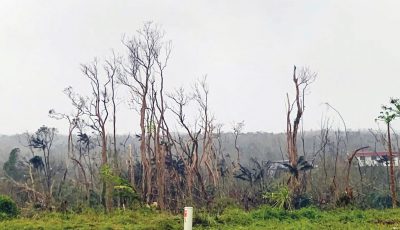Tonga explores ‘cheaper, sustainable’ electricity through biogas generation
NUKU’ALOFA, Tonga—Biogas generation using agriculture and animal products has promising potential for Tonga and the Pacific Islands, if pursued through a well-defined circular economy strategy.
This was the conclusion of a four-day visit jointly organized by the Pacific Community’s Centre for Renewable Energy and Energy Efficiency and the Institute for Applied Material Flow Management of the Trier University of Applied Sciences, Germany earlier in September.
The circular economy system alludes to the ecological cycles of nature with a constant stock of matter and influx of sun energy. In this natural economy waste does not exist. All matters are recycled with the help of sun energy as the needed additional energy source for 100 percent recycling. More practically explained, circular economy means reducing resource use and reducing the load on natural sinks.
Most of the renewable energy developments in Tonga and the Pacific Islands are currently based on solar and wind energy. They are, however, available on an intermittent basis such that a sudden drop in solar radiance due to cloud covers or a drop in the wind speed during calm days, etc., would be a sudden drop in the power network’s ability to meet demand. Power utilities in the Pacific are looking at battery storage systems to address this challenge.
Poasi Tei, Tinga’s minister for Meteorology, Energy, Information, Disaster Management, Climate Change and Communications, led a delegation from Tonga and the Pacific Community, or SPC, to witness how biogas is used in Germany as community-owned investments that generate affordable and highly efficient electricity and heat (or cooling) to the community.
“We are looking for a technology that would immediately lower the costs of power generation and have immediate impacts on the tariff to consumers, a power source that is also sustainable in the long term,” said Tei.
Biogas production is a mature technology that relies on the decomposition of bio-matter. Farmers in Germany plant, harvest, and use maze as substrate for the biogas plants. Maze plants are only harvested once a year during summer. In Tonga, the “saafa grass” grows wild everywhere and can be harvested year-round.
Biogas has been successfully used in Tonga at the household level. In Germany, it is used on an industrial scale with capacity of up to 5 megawatts. There are close to 10,000 commercial biogas plants in Germany and it is a proven technology.
Biogas produces energy on a 24-hour basis. It is a baseload energy source that can replace diesel power generation and have an immediate impact on reducing the power generation costs. The efficiency of the power generation is above 90 percent and it will generate organic fertilizers that are much needed for the declining soil fertility in Tonga.
A team from the Institute for Applied Material Flow Management of the Trier University of Applied Sciences, Germany will visit Tonga in November to hold further discussions with stakeholders and government on advancing Tonga’s desire to embrace biogas generation using a circular economy strategy. (PR)



























